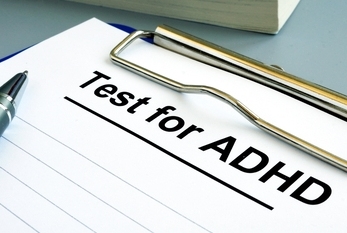
Many adults with untreated ADHD avoid getting diagnosed or seeking help because of the stigma around it. Some people mistakenly believe ADHD is just laziness or a made-up condition promoted by pharmaceutical companies.
However, years of scientific research confirm that adult ADHD is real and can significantly impact a person’s quality of life. Despite the stigma, understanding your ADHD is better than struggling without knowing the cause.
Getting an accurate diagnosis opens the door to various treatment options and coping strategies. ADHD isn’t the same for everyone, so finding the right approach takes time and careful evaluation. If you’re wondering whether you might have ADHD, taking an ADHD test in Dubai is a good first step. You can also explore tools like the ADHD self-assessment test to gain further insights before seeking professional help.
About Self-Assessment Test
This quick and easy online test is based on the World Health Organization (WHO) Adult Self-Report Scale (ASRS) Screener. IIt helps you recognize common symptoms of ADHD in adults. The test takes about 3—10 minutes.
Who Can Take This Test?
This test is for adults (18+) who have not been officially diagnosed with ADHD but want to better understand their symptoms. It’s open to everyone, regardless of gender, race, or nationality.
How Accurate Is It?
This test is just a starting point it’s not a formal diagnosis. It simply checks for common ADHD symptoms. Only a healthcare professional can conduct a full evaluation to rule out other conditions that may mimic ADHD. A proper diagnosis requires a thorough medical and psychiatric history. For individuals seeking clarity, obtaining a complete ADHD psychometric assessment in Dubai is essential. It’s also helpful to be informed about the ADHD test price in Dubai before booking an appointment.
This ADHD test is based on DSM-5 criteria. Scores of 14 and more indicate a high probability of ADHD.
| Over the last 2 weeks, how often have you been bothered by any of the following problems? Mark to indicate your answer | Not at all! | Several days | More than1/2 days | Nearly Every day | ||
| 1. How often do you have difficulty concentrating on what people say to you, even when they are speaking to you directly? | 0 | 1 | 2 | 3 | ||
| 2. How often do you leave your seat in meetings or other situations in which you are expected to remain seated? | 0 | 1 | 2 | 3 | ||
| 3. How often do you have difficulty unwinding and relaxing when you have time to yourself? | 0 | 1 | 2 | 3 | ||
| 4. When you’re in a conversation, how often do you find yourself finishing the sentences of people you are talking to before they finish them themselves? | 0 | 1 | 2 | 3 | ||
| 5. How often do you put things off until the last minute? | 0 | 1 | 2 | 3 | ||
| 6. How often do you depend on others to keep your life in order and attend to details? | 0 | 1 | 2 | 3 | ||
Find the total score by counting vertically the marked numbers in the columns.
Scores more than 14 in the ADHD Self-Assessment Test might indicate the diagnosis.
The ADHD Self-Assessment Test is a simple tool, allowing only basic orientation for adults with (or without) ADHD. Remember, please, that no single test can diagnose ADHD. To secure the diagnosis, an evaluation by a psychiatrist or psychologist specializing in ADHD is needed. ADHD diagnosis in adults is mostly based on an individual’s self-report, retrospective recollection of past history, interviews with family members, and finally on psychometric testing.
For proper ADHD assessment and psychometric testing in Dubai, contact our specialists at CHMC:
Call CHMC

